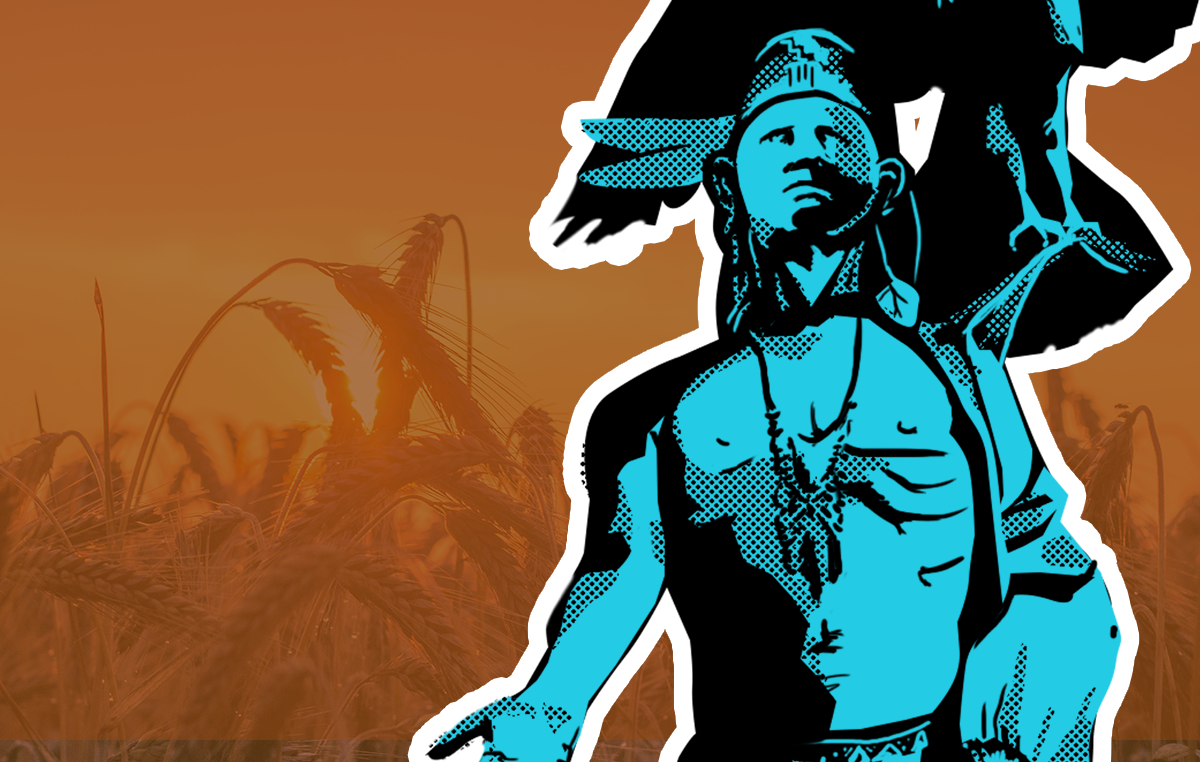November is Native American Heritage Month, as well as a time when many people in the United States celebrate Thanksgiving. If this holiday is a part of your family’s tradition, it may be time to give this annual harvest feast a conceptual refresh.
Giving thanks is a very old tradition that has been practiced by Indigenous cultures around the globe. In recent years, there has been a growing awareness of the false narrative that has long-dominated traditional and commercial celebrations of the Thanksgiving holiday.
Indigenous and allied movements across the country are working to protect the earth, its resources, and their rights. There is a movement to end the racist stereotypes and address cultural appropriation, to celebrate Indigenous Peoples’ Day and Native American heritage, and to acknowledge a more complete history of this land. This spirit is matched in the strivings of Indigenous peoples and movements worldwide.
The campaign for a Native American Heritage Month first began in 1915, but the month-long observance was not nationally recognized until 1990. Speaking of Native American Heritage Month, Stephen Roe Lewis, Governor of the Gila River Indian Community, explained, "There is no aspect of American history that has not been impacted by our tribal communities, which predate the state’s and nation’s founding by centuries. From military service to agriculture to the conservation of water and land, our tribes have always played a hugely significant role in shaping the world around us."
How will you celebrate Thanksgiving this year?
Is the idea that Thanksgiving is a false cultural narrative new to you? Begin to unpack some of the myths surrounding the "first Thanksgiving," and share this new understanding with family and friends, especially the young people in your life. Take a stand against consumerism and learn more about Buy Nothing Day. Share a meal with loved ones and discover new ways to celebrate harvest time.
Take a look at history closer to home
Do you know whose land you are living on? Explore the following blog posts about Indigenous Peoples’ Day and the regional history of the Leni-Lenape people. Read about a historical boarding school for Native American youth in Philadelphia. Immerse yourself in a Virtual Week of Action from Indigenous Peoples’ Day Philly. This multi-layered online resource for educators, social justice activists, and curious minds features recommended reading, lesson plans for the classroom, and suggested actions in support of our Indigenous communities.
Make room for new voices
Read There, There, and other One Book, One Philadelphia selected titles to immerse yourself in modern Native stories and grapple with the present-day realities of intergenerational trauma, healing, and hope. Check out Marvel’s Voices: Heritage #1, a newly released comic book featuring the work of Native American and Indigenous authors and artists, with limited copies available in our catalog. For further reading for young learners in your life, check out this collection of picture books for Indigenous Peoples’ Day, Indigenous Voices for Young Adults from #OneBookWednesday, or this Native American Heritage Month-inspired booklist for Teens.
Keep learning
A true celebration of this month calls for looking at history through a new lens. It requires reading between the lines of every history book, remembering who its authors were, and noting what’s been summed up, watered down, or erased. It means recognizing that Native American and Indigenous history is ever-present in our shared timeline, and acknowledging that it continues in the here and now.
Give thanks for that magical capacity to learn and unlearn, to change your mind, and to adapt. How awesome is that?
Have a question for Free Library staff? Please submit it to our Ask a Librarian page and receive a response within two business days.

